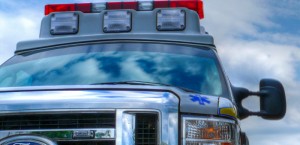Recently I assisted my company in updating our protocols. One topic I covered was the patient refusal. I wanted a new perspective on the matter with the goal of decreasing the risk of litigation as well as decreasing the total number of refusals. My approach was to first see how others were tackling refusals. I researched the protocols of other services and read many articles on the topic. It was obvious that the industry standard left grey areas that needed to be addressed. I then looked to the courts to answer some of the remaining questions by researching every court case I could find where someone first refused care and later sued the provider. With the help of our medical director this information was compiled to produce our new Informed Patient Refusal Protocol. This is a multi part blog series where I will break down the important topics realized from this project.
“You call we haul” but why?
You are dispatched to a residence for a ‘sick person’. As you arrive you enter the home after walking by 4 vehicles and multiple family members. You find the patient sitting next to a packed suitcase smoking a cigarette. The patient tells you he has had a cough for some time and wants some medicine. The patient denies SOB. You check vitals, ecg, and everything else in your assessment arsenal and only note the cough. You toss in an IV and lead a caravan of vehicles with their flashers on to the hospital.
I think everyone in EMS can relate to this and dreams of the ability to tell the patient to jump in your car and drive yourself the 1 mile to the hospital. So why don’t more services allow this? One group studied found prehospital provider refusal of transportation, as opposed to patient refusal of a transportation, accounted for 73% of the post refusal hospital admissions. Which means that to allow ground crews to determine if a patient should not be transported to the hospital would increase the risk of litigation / out of court settlement by 270%. In the future I would like to see the solution to this to be in the form of the advanced paramedic program where medics can talk to online medical control and write simple prescriptions for coughs and paper cuts but until then most services choose to take up that lovely old saying “you call, we haul”.
